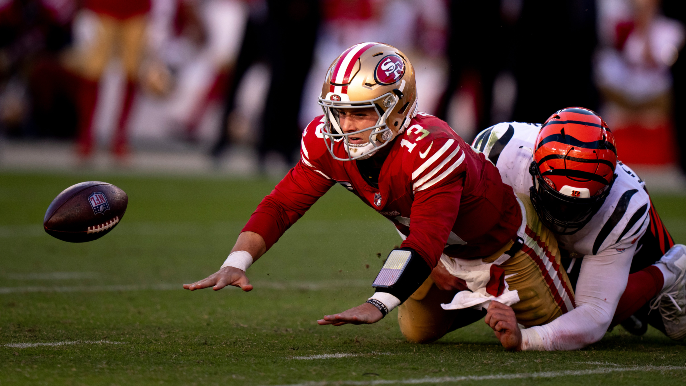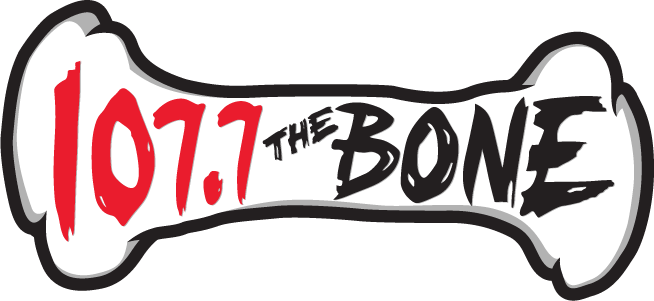
For five weeks, the 49ers looked like they had figured out football.
They had found the holy grail. Brock Purdy is the second coming of Joe Montana! The 49ers are Super Bowl-bound! Can they go undefeated?
Fast forward three weeks and, at 5-3, they are in sixth in the playoff picture in the NFC and have lost the lead in the NFC West. They have one more win than the 4-3 New (Jersey) Jets, whose quarterback is Zach Wilson and which punted 11 times, turned the ball over three times, and won on Sunday over their fellow East Rutherford Giants.
Sure, that’s, not actually a practical example because the Jets’ wins have been categorically absurd. But the NFL is absurd, and sometimes, if not often, you have to win dumb.
For the 49ers, it’s time to weed through the guff and balderdash to find out what is worth losing sleep over and what’s not.
(Yes, we’re using terms like “balderdash.” The 49ers’ current contender-to-pretender trajectory has earned them that.)
Is Steve Wilks the right man for the job, and if not, do you have someone to replace him?
This seems like the most pressing question.
Wilks is a problem. He is the new variable into an equation that has generally given predictably positive answers for this 49ers defense over the last half decade. This is a group without any major injuries.
After watching Vikings defensive coordinator Brian Daboll take a mediocre group and stifle the 49ers, and Lou Anarumo similarly mix things up this week — both shut down Christian McCaffrey — it’s hard to stomach San Francisco’s simplicity.
They are running consistent, soft zone coverage. You could have blind guessed Cover-2 or Cover-4 on Sunday and guessed mostly right. They are wasting Fred Warner’s talents.
On a couple of their well-timed blitzes from Dre Greenlaw, the 49ers got home with Arik Armstead.
This is not to say there’s one schematic answer, or that blitzing will always work. Wilks showed Monday that’s far from the case.
But the idea that the 49ers can stick with mostly simple zone coverage at a time when defensive coordinators are being proactive and creative in defeating offenses, is delusional.
Let’s say, thought, that you want to replace Wilks.
To be clear, this is not advocating for Wilks’ or anyone’s firing. But the defense has been miles off its standard, and it is a completely fair conversation to have.
If you do fire Wilks, who on the staff could even take on that role?
Krik Kocurek’s defensive line unit hasn’t quite got the job done, and you’d probably like to keep him with that group. Johnny Holland is a veteran in the linebacker room, but like Kocurek, has specialized there for his career. Ideally, you’d like a younger mind.
From this seat, only Daniel Bullocks, the 49ers’ safeties coach, would make much sense. He’s been in this system since 2017, and at age 40, would offer the closest thing to the energetic, young presence San Francisco had with DeMeco Ryans and Robert Saleh. He has the added credibility of being a former player.
Maybe that sideline presence is important, maybe it’s not.
But it’s hard not to see value in being able to communicate with players on the sideline during games. It’s worked in the past, and the distance of Wilks in the booth looms larger with every loss.
If you keep Wilks, what’s the path towards improving the defense?
So, say the 49ers keep Wilks.
Something has to give.
It’s always easier to say “just mix up your coverages” than it may be in reality to implement.
But San Francisco has clearly experimented more in the past. The five-man front has all but disappeared. The presence of Double-A gap blitzes, or at least the threat of them, to disguise coverages, is few and far between. There are few examples of defensive ends being used in stand-up/interior pass rush roles in the way Charles Omenihu and Arden Key were, to substantial success. Their stunts are taking too long to develop when they are used. They drafted Ji’Aiyir Brown in the third round, who has played 26 total defensive snaps on a team which sometimes employed big nickel (three safety) packages.
The 49ers have arguably the two best linebackers in football who have the ability to flash pressure and drop into coverage. They have an abundance of positionally-flexible players.
Yet, they opt for predictability.
Cincinnati picked them apart by taking underneath throws, running multiple draws when the middle of the field was open, and then taking their one-on-one shots when they were available. San Francisco continues to appear massively vulnerable to screens as teams encourage their front to get upfield while the backend is locked into coverage 15-plus yards away.
Maybe it’s simply a matter of time before the defensive line starts getting home regularly. But to assume would be a damning display of naïveté and an invitation to further embarrassment.
Kyle Shanahan needs to be involved in self-scouting this defense. He should take his bye, watch tape on the defense and inform Wilks and his staff how he would attack them, and what the counters are. It shouldn’t take long. It’s been obvious to the 49ers’ last few opponents.
Even when Trent Williams returns, is the offensive line capable enough?
The 49ers can’t run the ball. Take this stat, per Eric Branch, as proof of the eye test:
Brock Purdy, with 57 yards, was the 49ers’ leading rusher against the Bengals.
Is it the lack of Trent Williams and/or Deebo Samuel? Should they consider going back to a zone-heavy run scheme? Or is the personnel simply not good enough?
There are major questions of that interior offensive line group. But even if the 49ers recognize that they have a weakness there, offensive line is a tough position to acquire depth via trade, and they paid for a high-priced interior backup in Jon Feliciano.
So maybe it’s time to consider Feliciano if tape indicates Spencer Burford isn’t getting the job done. At the very least, there needs to be an increased sense of urgency there and a genuine assessment of whether there are better options available.
Will the offense return to form when Deebo Samuel comes back?
Never forget, even when his statistical impact is limited, Samuel’s defensive presence massively influences defenses. Here’s the 49ers’ record since 2019 when he plays at least 10 snaps, versus without him, including the playoffs:
With Samuel: 45-19
Without Samuel: 8-11
Is it as simple as Samuel returning to the offense to fix things? Probably not, but he has perfected the art of turning a 2-yard loss into a 6-yard gain, and puts defenses in conflict.
He and McCaffrey basically offer the same type of dual threat. Without him on the field, there is innately more predictability in the run and pass game.
Can Brock Purdy get the turnovers under control, and can they respond when trailing?
There is major cause for concern with Purdy’s turnovers at this point.
Five interceptions in three games, plus six fumbles (some of which were early in the season on bad exchanges), is problematic. His playmaking on Sunday outside of the structure was stellar, but his first interception, on a 1st-and-goal, was brutal.
His second, the “Jimmy G Staredown Remix ft. Logan Wilson,” was a nightmare that 49ers fans are all too familiar with.
If he consistently turns the ball over, especially on bad reads, this team is not to be taken seriously. His lack of arm strength showed up multiple times Sunday. When he makes bad decisions, defenders have more time than with other quarterbacks to capitalize on them.
Oh, and the 49ers still can’t come back from substantial deficits.
Purdy at least had an impressive off-schedule drive to make it a one-score game in the fourth, before the Bengals burrowed their way through the Swiss cheese holes in the defense to ice things.
But this is a team all too accustomed to almosts. They have been defined by “almost” getting over the hump. They can’t be almost good enough again, and have to come up with answers to at least some of these questions over the bye.

